MASKS FOR EMPLOYEES DURING THE COVID-19 PANDEMIC?: WHITE HOUSE, GOVERNOR WOLF RECOMMEND MASKS FOR THE PUBLIC AND OSHA ISSUES GUIDANCE FOR EMPLOYERS

MASKS FOR EMPLOYEES DURING THE COVID-19 PANDEMIC?: WHITE HOUSE, GOVERNOR WOLF RECOMMEND MASKS FOR THE PUBLIC AND OSHA ISSUES GUIDANCE FOR EMPLOYERS
April 3, 2020
Publications
As many employers adjust to operate during the COVID-19 pandemic and strive to protect their workers, the federal government and states are scrambling to ensure healthcare workers and first responders have an adequate supply of N95 masks and other personal protective equipment (PPE). Essential employers may encounter a shortage of essential PPE. At the same time, momentum is building across the country for everyone to wear masks when leaving home, including in Pennsylvania where Governor Wolf recommended on April 3 that all Pennsylvanians wear a mask any time they leave their homes. This would include during work for life-sustaining businesses not subject to the Governor’s stay-at-home order. Expanding on the Governor’s recommendation, the Pennsylvania Department of Health has issued Guidance on Homemade Masks During COVID-19, explaining: “Homemade masks made out of fabric and cloth are not considered PPE,” but can be effective in limiting the spread of COVID-19. Later on April 3, President Trump also announced that the CDC recommends wearing the same types of cloth face coverings as a voluntary measure to slow the spread.
Also on April 3, for employers, the U.S. Department of Labor issued OSHA’s Enforcement Guidance for Respiratory Protection and the N95 Shortage Due to the Coronavirus Disease 2019 (COVID-19) Pandemic (Guidance), which attempts to balance the need to protect healthcare workers who desperately require PPE (like N95 masks) for COVID-19, with the need to protect other employees during essential work that involves respiratory hazards.
Overall, guidance regarding masks has been somewhat inconsistent to date. Now, to protect everyone and slow the spread, the messaging indicates that the general public and workers who do not require respiratory protection at work under OSHA’s Respiratory Protection Standard should use homemade fabric or cloth masks (which are not PPE subject to the Standard).
So what about non-healthcare workers who need respiratory protection for their jobs? Will employers have enough PPE for their employees, and at what cost to healthcare workers, other essential employees, and employers’ budgets? Employers should consult the OSHA Guidance, summarized below, and consider implementing a conservation plan for PPE and a temporary policy for their workers during the pandemic.
OSHA’s Guidance
OSHA’s Guidance indicates that all employers subject to the Respiratory Protection Standard must continue to comply and implement their written respiratory protection programs. But, due to the shortage of N95 masks, OSHA is recommending that all employers “reassess their engineering controls, work practices, and administrative controls to identify any changes they can make to decrease the need for N95 respirators. Employers should, for example, consider whether it is possible to increase the use of wet methods or portable local exhaust systems or to move operations outdoors. In some instances, an employer may also consider taking steps to temporarily suspend certain non-essential operations.”
Additionally, OSHA’s Guidance details a number of steps employers can take to safeguard their employees during the potential N95 shortage, including: (1) utilizing alternatives to N95 masks that provide equal or greater protection (e.g., N99, R95, P100); (2) extending the use and allowing for the reuse of N95 masks; and (3) where N95 masks are unavailable, using N95 masks that are beyond their shelf life. In the Guidance, OSHA prescribes specific requirements for implementing each of these alternatives. Therefore, it is essential that employers carefully review the Guidance to ensure that any changes instituted in the workplace conform to the Respiratory Protection Standard and Guidance, and are effectively communicated to employees.
For assistance in addressing any environmental, health, and safety issues, McNees attorneys remain available to assist you 24/7 as the need arises: Steve Matzura (smatzura@mcneeslaw.com) (Mobile: 570.205.3878); Andrew Levy (alevy@mcneeslaw.com); and Errin McCaulley (emccaulley@mcneeslaw.com). Regular updates concerning COVID-19 are also posted on the McNees COVID-19 Resource Page.




